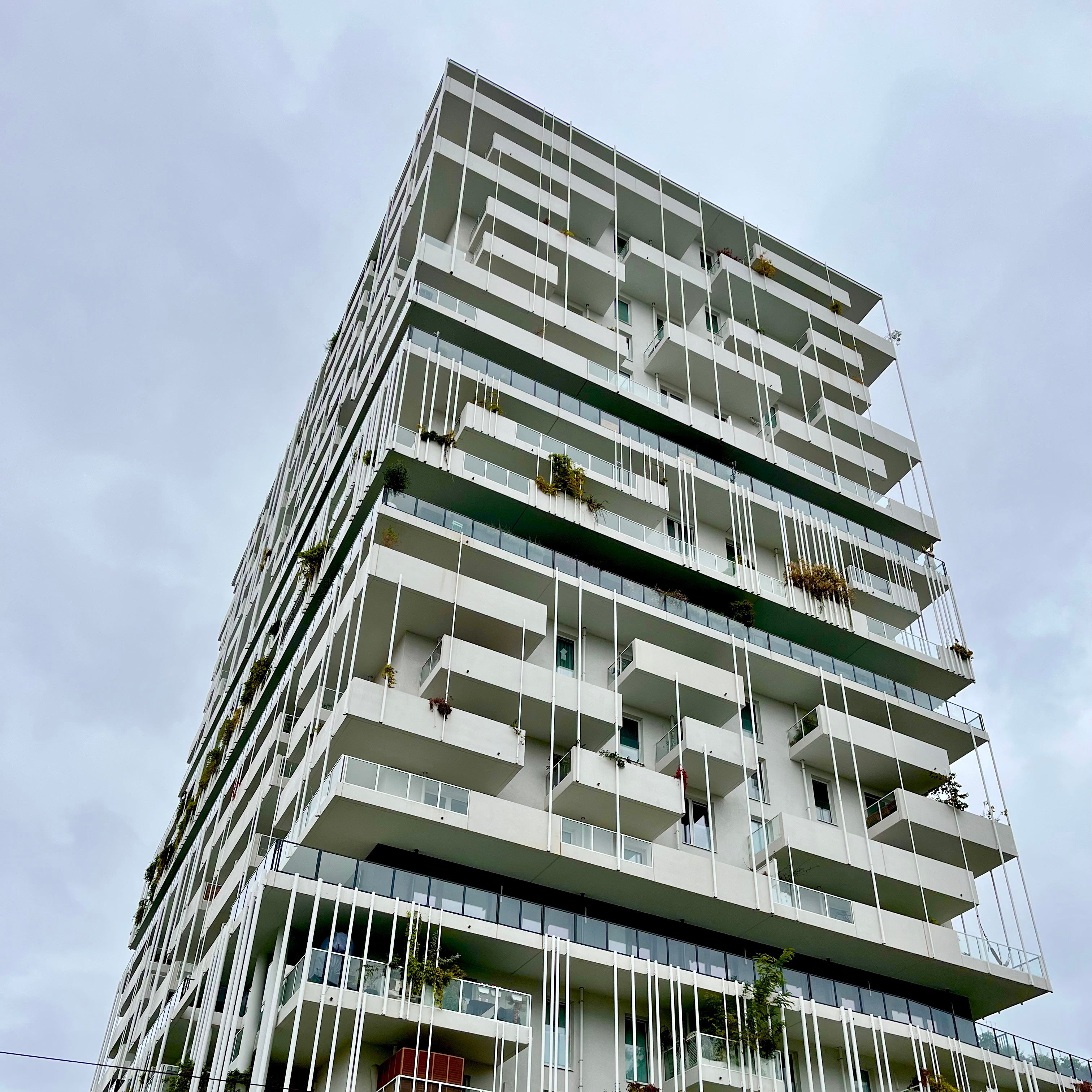
Kate Orff is the 2024 Thomas Jefferson Foundation Medalist in Architecture
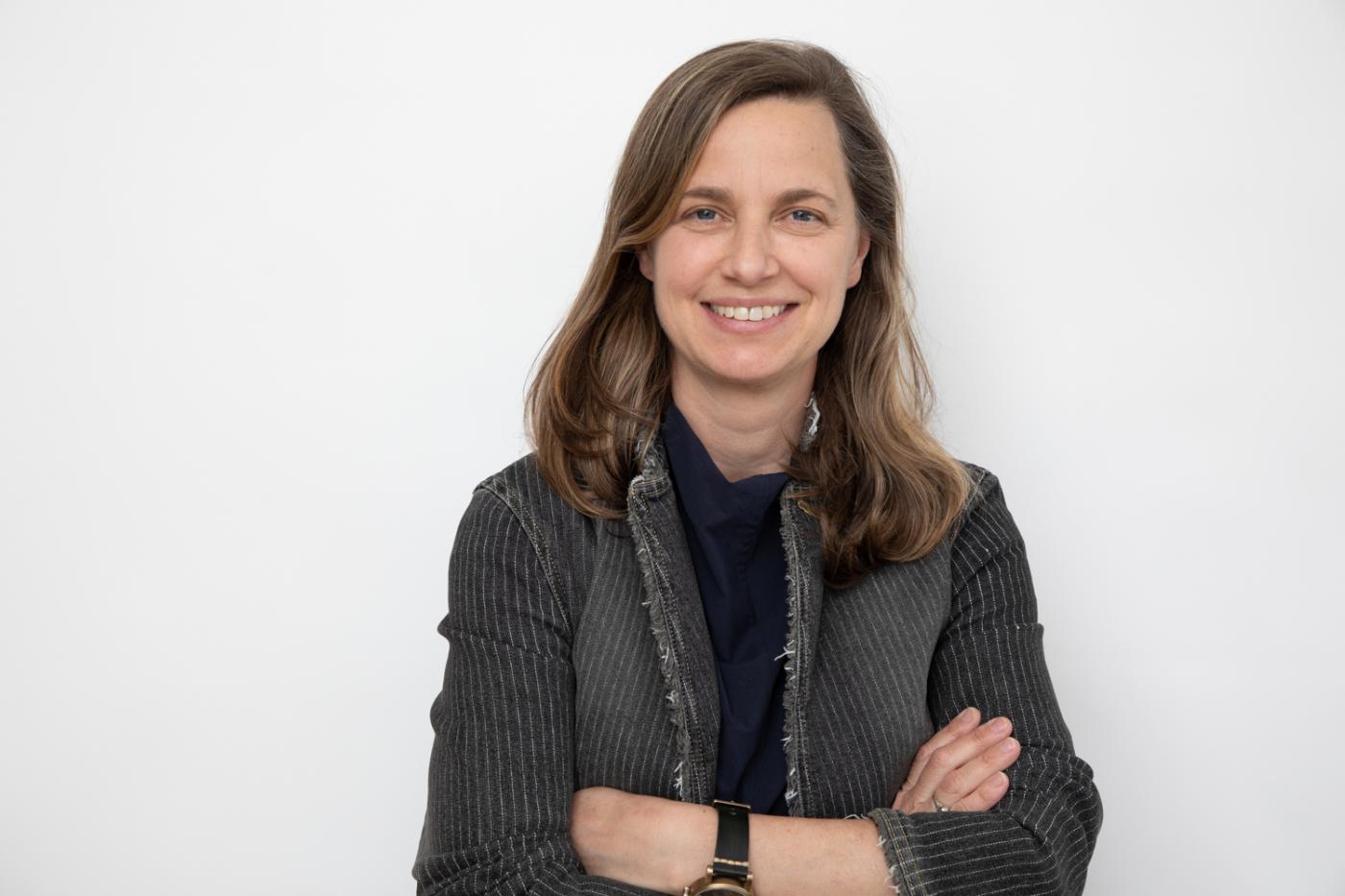
Landscape architect and founding principal of SCAPE, Kate Orff, RLA, FASLA, has been named the 2024 recipient of the Thomas Jefferson Foundation Medal in Architecture.
The Thomas Jefferson Foundation Medals – sponsored jointly by the University of Virginia and the Thomas Jefferson Foundation, the nonprofit organization that owns and operates Monticello – are awarded each year to recognize the achievements of those who embrace endeavors in which Jefferson – author of the Declaration of Independence, third U.S. president and founder of the University of Virginia – excelled and held in high regard. The architecture medal and its counterparts in law, citizen leadership, and global innovation are UVA’s highest external honors.
Orff joins a distinguished list of past recipients of the Thomas Jefferson Foundation Medal in Architecture, including Ludwig Mies van der Rohe, I.M. Pei, Frank Gehry, Toyo Ito, Zaha Hadid, Francis Kéré, and Andrew Freear.
“Kate Orff is a visionary leader whose work is at the forefront of creating new forms that combine living infrastructure and public space in the face of climate change,” said UVA School of Architecture’s Dean Malo A. Hutson. “It is such an honor to recognize her as this year’s medalist as she reminds us of both the promise and responsibility of the design fields in the complex project of rebuilding natural systems—not just to reduce climate risks, but also to create more beautiful, equitable, and lasting places for future generations to experience.”
Orff will give a public talk to mark the occasion on April 12 at 3:30 p.m. in Old Cabell Hall’s auditorium. This event is free and open to all, registration is not required.
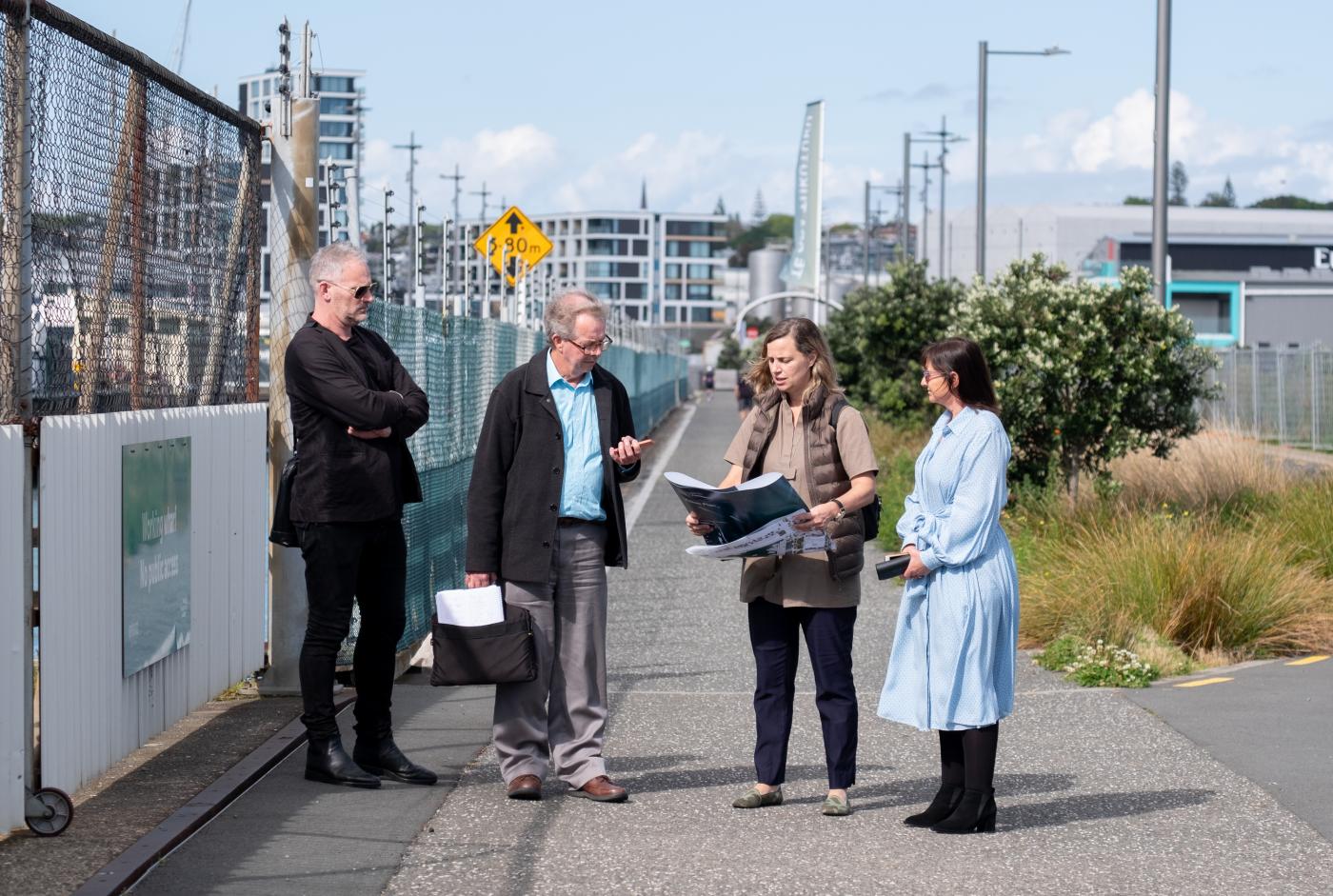
Widely recognized as a leading voice in landscape architecture, urban design, and climate adaptation in a global context, Orff is known for advancing complex, creative, and collaborative work that advances broad environmental and social needs. Through the development of ecological pilot projects across geographies and contexts, she creates nature-based infrastructure that expertly combines community engagement, ecological rebuilding, and risk reduction.
Orff founded SCAPE in 2007 in New York City and has helped grow the firm to a staff of over 80 individuals including landscape architects, urban planners, architects, ecological designers, horticulturists, and community engagement professionals. With two additional offices in New Orleans and San Francisco, SCAPE has planned, designed, and built parks, waterfronts, plazas, master plans, campuses, greenways, streetscapes, and more. Over nearly two decades, they have translated complex visions into restorative, beautiful and equitable landscapes.
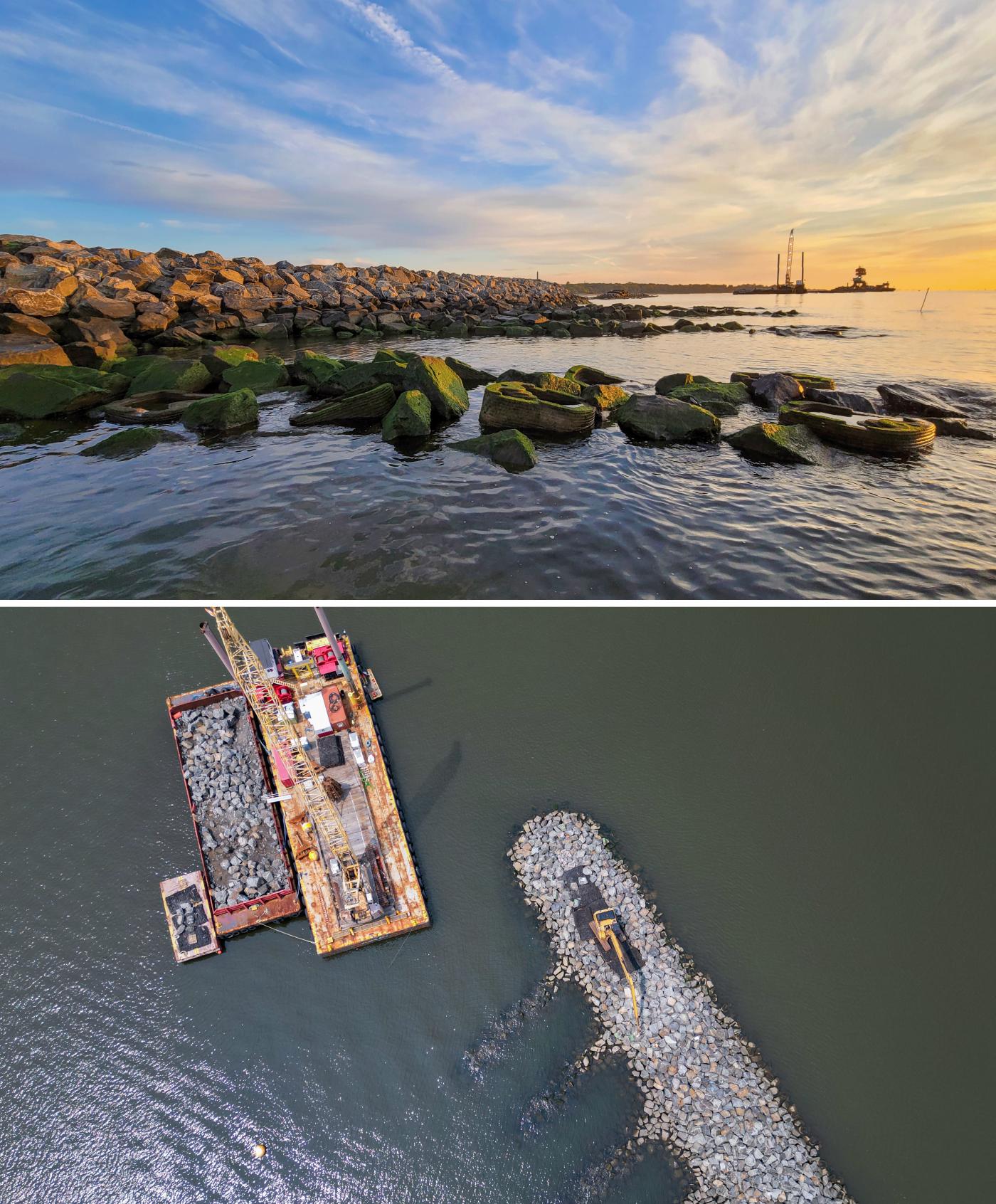
Recent award-winning projects of SCAPE have included Living Breakwaters and Tom Lee Park. In response to the devastation following Superstorm Sandy, Living Breakwaters, which broke ground in 2021, is widely considered a model for climate-adaptive green infrastructure. The project, located along the south shore of Staten Island, New York, consists of partially submerged structures made of marine stone and ecologically enhanced concrete units that break waves, calm the waters, rebuild beaches, reduce erosion, and provide a range of habitat spaces for marine species. The 2,400 linear feet of breakwaters address ecological resilience by bringing back the protective nature of the water’s edge, while building social resilience through citizen science and education. Among other recognitions, the project was honored with the OBEL Award in 2023, praised by the jury chair Martha Schwartz as a “visionary project that tackles the full task of adaptation, and which has the capacity to inspire and to positively impact vulnerable shorelines worldwide.”
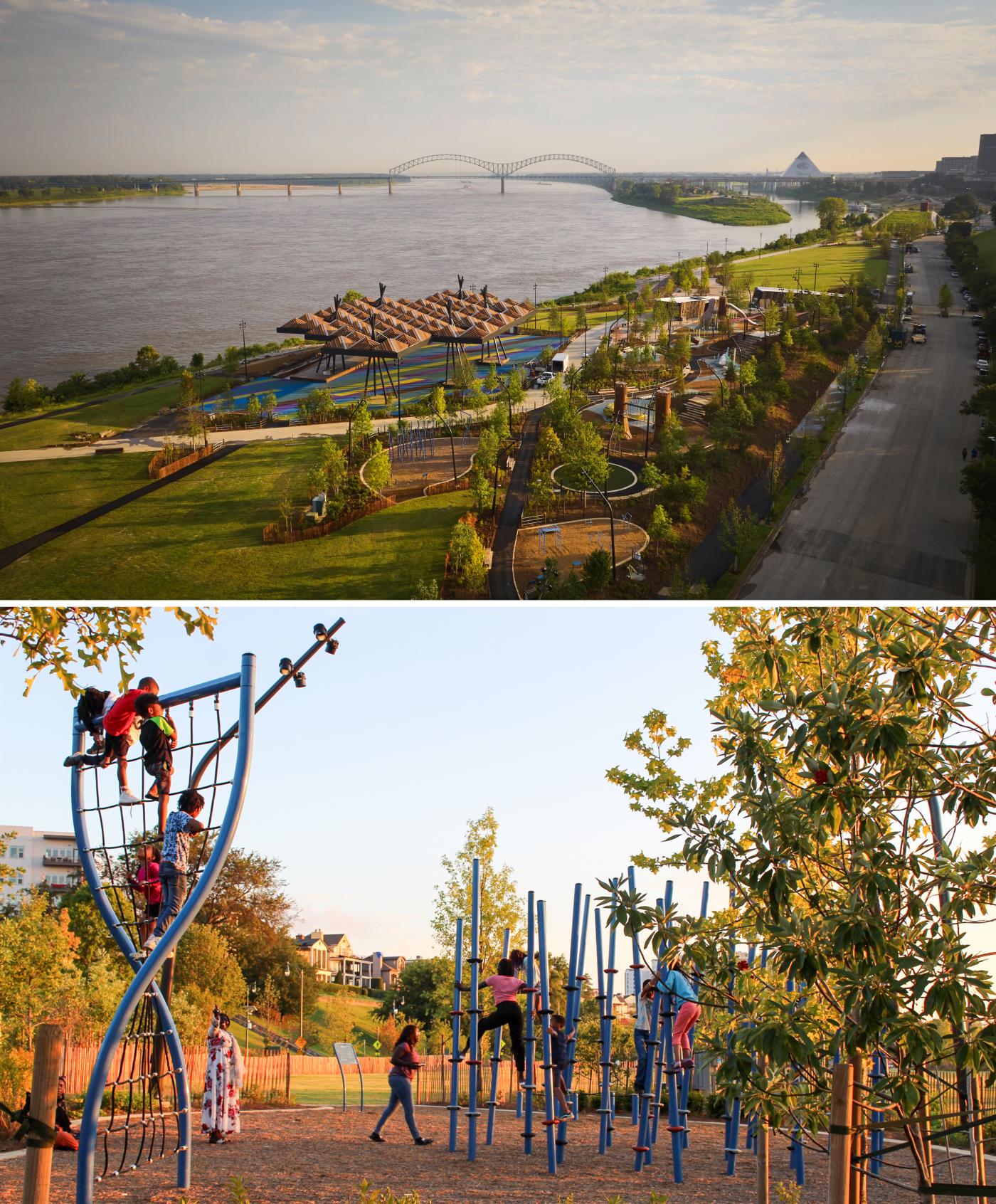
Opened to the public in September 2023, Tom Lee Park is a 31-acre stretch of parkland near downtown Memphis, Tennessee, along the Mississippi River. The project, a collaboration with Chicago-based architecture firm Studio Gang, is conceived of as a network of parks that knit the city back together and re-envision its relationship to the river. The project’s design incorporated input from thousands of Memphians, and provides civic spaces for sports and fitness, multi-generational play, environmental education, events, concerts, and more. Weaving together circulation and topography, in part with a five-mile walking and biking trail, the landscape forms mimic the dynamic hydrology and sediment flows of the river, and connect the river park to key public venues including the National Civil Rights Museum and Cossitt Library.
“As a society we are facing the effects of radical fragmentation in the American landscape and our dependence on oil, including the loss of biodiversity, sea level rise, and increasing wildfire. Landscape architecture can stitch the fabric of these protective landscapes back together through ecological regeneration and community-driven design,” said this year’s medalist Orff. “Now is the time to value and rebuild the landscapes that have sustained us, cleaned our air, and filtered our water at a holistic, planetary scale. I’m honored to receive this year’s Thomas Jefferson Foundation Medal in Architecture and hopefully, this recognition will inspire designers to lead the way in implementing resilient landscapes that spark systemic change.”
Orff grew up in Crofton, Maryland, and graduated with a Bachelor’s degree in Political and Social Thought from the University of Virginia and a Master’s in Landscape Architecture from the Graduate School of Design at Harvard University. She is currently the director of the urban design program at Columbia University’s Graduate School of Architecture, Planning, and Preservation, where she is also the co-director of the Center for Resilient Cities and Landscapes (CRCL) and a professor. Orff is the author and co-author of numerous books including Toward an Urban Ecology (2016) and Petrochemical America (2012) respectively, and contributor to the best-selling anthology of women climate leaders, All We Can Save (2020). In addition to many other leadership appointments, she sits on the Commission on Accelerating Climate Action for the American Academy of Arts and Sciences and the advisory board for policy-based think tank Urban Ocean Lab.
Orff has been profiled extensively, including in The New York Times, The Economist, National Geographic, The Washington Post, and more. Her honors include being named a MacArthur Foundation ‘Genius’ Fellow (2017), an American Society of Landscape Architects Fellow (2019), and Urbanist of the Year by The Architect’s Newspaper (2020). Orff was recognized in 2023 on the TIME100 Most Influential People in the world list, described as a “landscape architect who’s never been hemmed in by garden walls—seeking instead to liberate landscape to do nothing less than repair our warming planet through design.”
The Thomas Jefferson Foundation Medal in Architecture is one of three medals to be presented. This year’s Medal in Law goes to Roger L. Gregory, the first Black judge to serve on the U.S. Court of Appeals for the Fourth Circuit. The Medal in Citizen Leadership will be awarded to Julieanna L. Richardson, the founder and president of The HistoryMakers, a national non-profit educational institution that has curated, presented and preserved the histories of thousands of African Americans. This year’s medal winners will be celebrated at luncheon in the Dome Room of UVA’s Rotunda, marking the 281th anniversary of Jefferson’s birth in 1743.
Kate Orff Public Talk - Event Details
Founders Day - Event Details
THOMAS JEFFERSON FOUNDATION MEDALISTS IN ARCHITECTURE
1966 MIES VAN DER ROHE
1967 ALVAR AALTO
1968 MARCEL BREUER
1969 JOHN ELY BURCHARD
1970 KENZO TANGE
1971 JOSE LUIS SERT
1972 LEWIS MUMFORD
1973 JEAN LABATUT
1974 FREI OTTO
1975 SIR NIKOLAUS PEVSNER
1976 I.M. PEI
1977 ADA LOUISE HUXTABLE
1978 PHILIP JOHNSON
1979 LAWRENCE HALPRIN
1980 HUGH A. STUBBINS
1981 EDWARD LARRABEE BARNES
1982 VINCENT SCULLY
1983 ROBERT VENTURI
1984 H.H. THE AGA KHAN
1985 LEON KRIER
1986 JAMES STIRLING
1987 ROMALDO GIURGOLA
1988 DAN KILEY
1989 PAUL MELLON
1990 FUMIHIKO MAKI
1991 JOHN V. LINDSAY
1992 ALDO ROSSI
1993 ANDRES M. DUANY & ELIZABETH PLATER-ZYBERK
1994 FRANK O. GEHRY
1995 IAN L. MCHARG
1996 JANE JACOBS
1997 JAIME LERNER
1998 JAQUELIN T. ROBERTSON
1999 LORD RICHARD ROGERS
2000 DANIEL PATRICK MOYNIHAN
2001 GLENN MURCUTT
2002 JAMES TURRELL
2003 TOD WILLIAMS & BILLIE TSIEN
2004 PETER WALKER
2005 SHIGERU BAN
2006 PETER ZUMTHOR
2007 ZAHA HADID
2008 GRO HARLEM BRUNDTLAND
2009 ROBERT IRWIN
2010 EDWARD O. WILSON
2011 MAYA LIN
2012 RAFAEL MONEO
2013 LAURIE OLIN
2014 TOYO ITO
2015 HERMAN HERTZBERGER
2016 CECIL BALMOND
2017 YVONNE FARRELL & SHELLEY MCNAMARA
2018 SIR DAVID ADJAYE
2019 KAZUYO SEJIMA & RYUE NISHIZAWA
2020 MARION WEISS & MICHAEL MANFREDI
2021 DIÉBÉDO FRANCIS KÉRÉ
2022 KENNETH FRAMPTON
2023 ANDREW FREEAR & RURAL STUDIO
2024 KATE ORFF
MEDIA CONTACT:
University of Virginia School of Architecture, Sneha Patel, snehapatel@virginia.edu


